Steph W. from SEOPressor


...help you check your website and tell you exactly how to rank higher?




...help you check your website and tell you exactly how to rank higher?



SUBSCRIBE TO SEOPressor BLOG
Join 50,000+ fellow SEO marketers!
Get SEOPressor latest insights straight to your inbox.
Enter your email address below:
98
score %
SEO Score

Found us from search engine?
We rank high, you can too.
SEOPressor helps you to optimize your on-page SEO for higher & improved search ranking.
By vivian on February 8, 2017
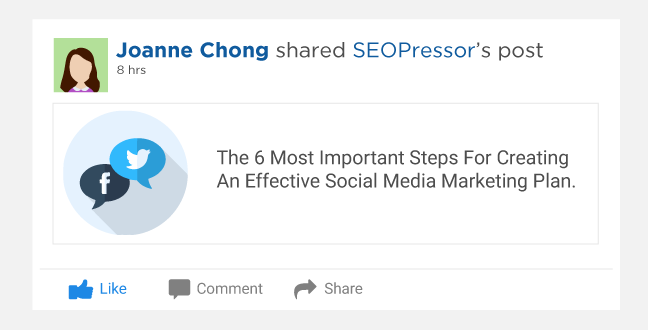
The importance of social media in modern marketing cannot be denied. Despite that, the difficulty in mastering social media and making it an effective part of your marketing strategy cannot be ignored.
I understand that social media feels like a tough nut to crack because on the surface it seems so immediate that it must be time-consuming to manage, update and constantly respond to users. Where is the time for everything else involved in running a business?
This problem can only be answered by getting organized. By having a simple and effective social media marketing plan, you can separate out the stuff that takes the time and front-load it into a dedicated day.
From there, the updates themselves take a fraction of the time, and you are once again free to build your business, with the benefit of getting lots of new eyes on your products or services.
So how do you spend that day? If it’s day one, then I recommend you spend it coming up with a social media marketing plan. Once you do this, you’ll be able to effectively organize your social media strategy forever, by simply updating the plan month by month.
I want to help you understand where your social media stands right now, identify where you want it to go, and help you get there.
To that end, I’ve created a six-point plan that will deliver to you an achievable, time-economic social media marketing plan.

Before you do anything, follow these steps to understand where it is you want to go. After all, it’s never a good idea to set off without first knowing your destination. You could end up going the wrong way!
First of all, identify your current social media return on investment (ROI). This means understanding what kind of activity you’re getting from your accounts. Retweets, likes, comments and other forms of engagement are your basic signals here, but they’re just the beginning.
Look at your user activity. Social media is still decidedly ‘grey’. Because it works indirectly, it can be difficult to tell if it’s working at all. You may have a lot of engagement but relatively few leads. Go beyond metrics such as Retweets and Likes and investigate advanced metrics instead. Namely, the leads generated, web referrals, and conversion rate.
This information helps you establish where you’re at, so you can determine where you’re going. When establishing your goals, ensure they adhere to the S.M.A.R.T framework.
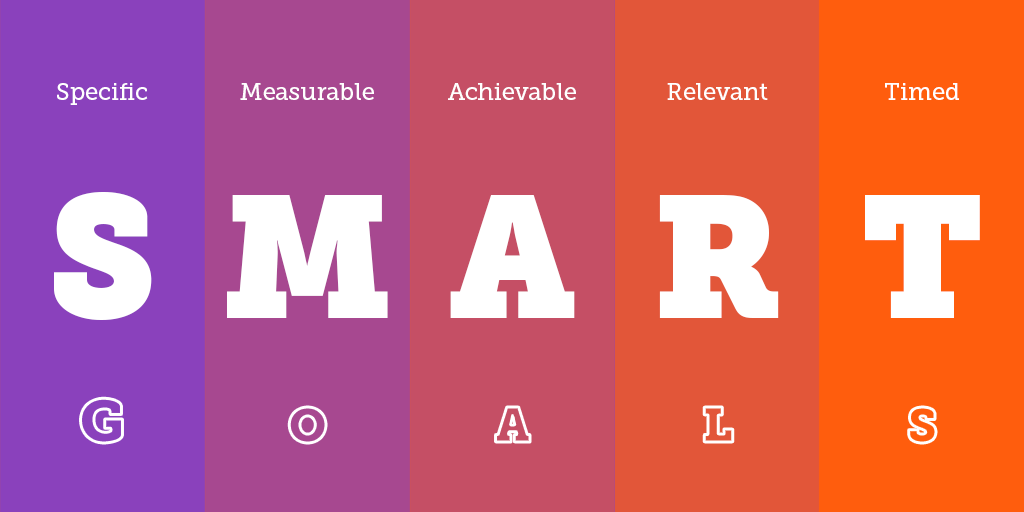
To give you an example of a S.M.A.R.T target – we post our blogs on Twitter. We share 3 blog posts a day. Our target for those posts in to get 50 shares and 30 comments. As we grow in popularity, those goals will change.
Important: Bear in mind you have to be able to see the impact of your goals. If we get or exceed 50 shares and 30 comments, but it makes no observable difference to traffic and sales, we need to look at things like headlines, lead conversions and more. This helps the business get better.
In order to grow your business, you need to be able to connect it to those who will care about what it offers.
See what social media they use and establish a presence there. This differs market to market – LinkedIn is better for business to business sales while Facebook is better for consumer products, for instance.
Research your competition. Everyone will have a company offering something similar. Find the most successful in your niche and analyze what they’re doing well. If you find pages that are struggling, analyze what they’re getting wrong. Move toward the practices of the successful and away from those of the unsuccessful.
Look at their number of followers, then look at how often they post, when they post (post time and day are important), what themes they cover, how they address their audience, and what they ask of them.
Understand who you’re selling to and what their problems are. This will tell you which platform to prioritize in your strategy.
There’s one word I’m going to use a lot here: Optimization.
You need to build your online presences in such a way that people can find them. That means understanding and acting on the basics of Search Engine Optimization. In essence, using the same phrases people use when searching for products and services like yours when you post.
Making sure the profiles themselves are optimized can make a huge difference to getting more eyes onto your website via social media. What’s more, social posts are now indexed in Google search results, which means having strong social media backlinks will increase your website ranking for your keywords. That means effective social media marketing is effective SEO and vice versa.
If it’s early days, consider content promotion too.

Content promotion can help with establishing a wider audience, and it means social networks do most of the work for you, saving time on networking and hustling.
By boosting posts you can guarantee you’ll get fresh eyes on your material. If that material is good, those will become followers who will stay with you for the future.
On a slightly more boring or practical note, all your images and text should be optimized.
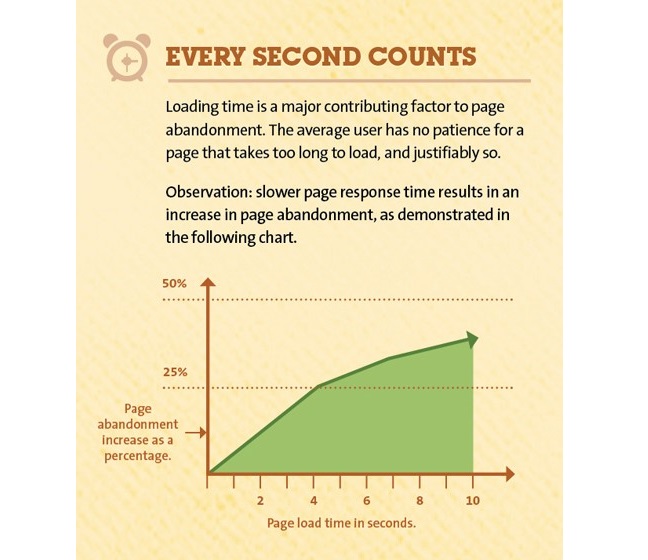
If your page loads slowly or is formatted poorly, people will simply navigate away and not come back.
This has a surprisingly large effect on your audience.
Unless you’re the undisputed world champion, there’s always someone who is better than you at what you’re trying to do. Don’t be discouraged by that, it’s good news! These are your role models and mentors.
Find the leading lights in your industry and observe them. Look at how they write tweets. What they tweet about. How they manage interactions. Mirror this behavior in your own voice, and you’ll start to mirror their success.

One of my favorite influencers that I follow closely with is Rand Fishkin. Not only he shares useful information, he also offers insights and advice that I found very helpful.
At the same time, don’t forget the little guys. Your clients and users are an invaluable resource. When thinking about establishing your voice, try and sound like the people you want to help. People instinctively trust people who feel like friends, which means mirroring their values and even their word choice.
So, find out what to do from above, and how to do it from below.
While you’re observing, don’t forget to look at what people share and why they share it. The latter part of that equation will allow you tailor your content to always fulfill that need, be it rational or emotional.
One of my favorite examples is this tweet from Oreo.
Power out? No problem. pic.twitter.com/dnQ7pOgC
— Oreo Cookie (@Oreo) February 4, 2013
They responded quickly to a situation that created apprehension in people, and offset it with a comforting behavior that made use of their product while tying it into their brand color scheme. Genius. 15,000 retweets.
It’s complex to be that simple, but the reward is well worth it.
There’s a fine line between frequent content and spamming. To avoid this, you need to promote your content wisely and in a timely manner.
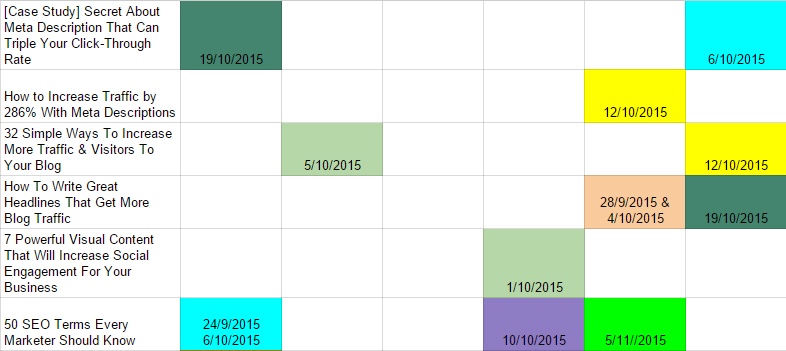
You can even create your very own content marketing plan like my teammate, Azfar did.
The best way to do this is to create a content promotion plan and an editorial calendar that allows you to schedule your updates. This takes away much of the hand-wringing that surrounds deciding what to post and when and leaves your mental resources free for the rest of your business.
This content plan will be greatly served if, when you write the post itself, you also write up the Facebook and Twitter message to go with it and add these in a separate column. A little discipline saves a lot of time.
If you use SEOPressor to optimize your content while you write, you’ll be pleased to know you can also share your content through the tool, with customized meta descriptions for both Facebook and Twitter.
When you’re forming this calendar, keep in mind the best and worst times to post to social media, and schedule accordingly.
Now you have your plan, you’re at the beginning! Sorry if you that was the end, but it can’t possibly be. Everything we’ve gone through so far has been based on theory.
The great news is that once you put it into practice, you can begin tracking performance to see how your social media marketing plan is improving your business, and how it could be improved itself.
You can use UTM codes or Google Analytics to track the number of clicks you’re getting and use this information to discover what’s working and what could be working better.
What’s more, you can do things the old-fashioned way: ask them. Host a poll on Twitter and see if people notice the improvements. If not, you know you have more work to do. If so, you know you’re going in the right direction.
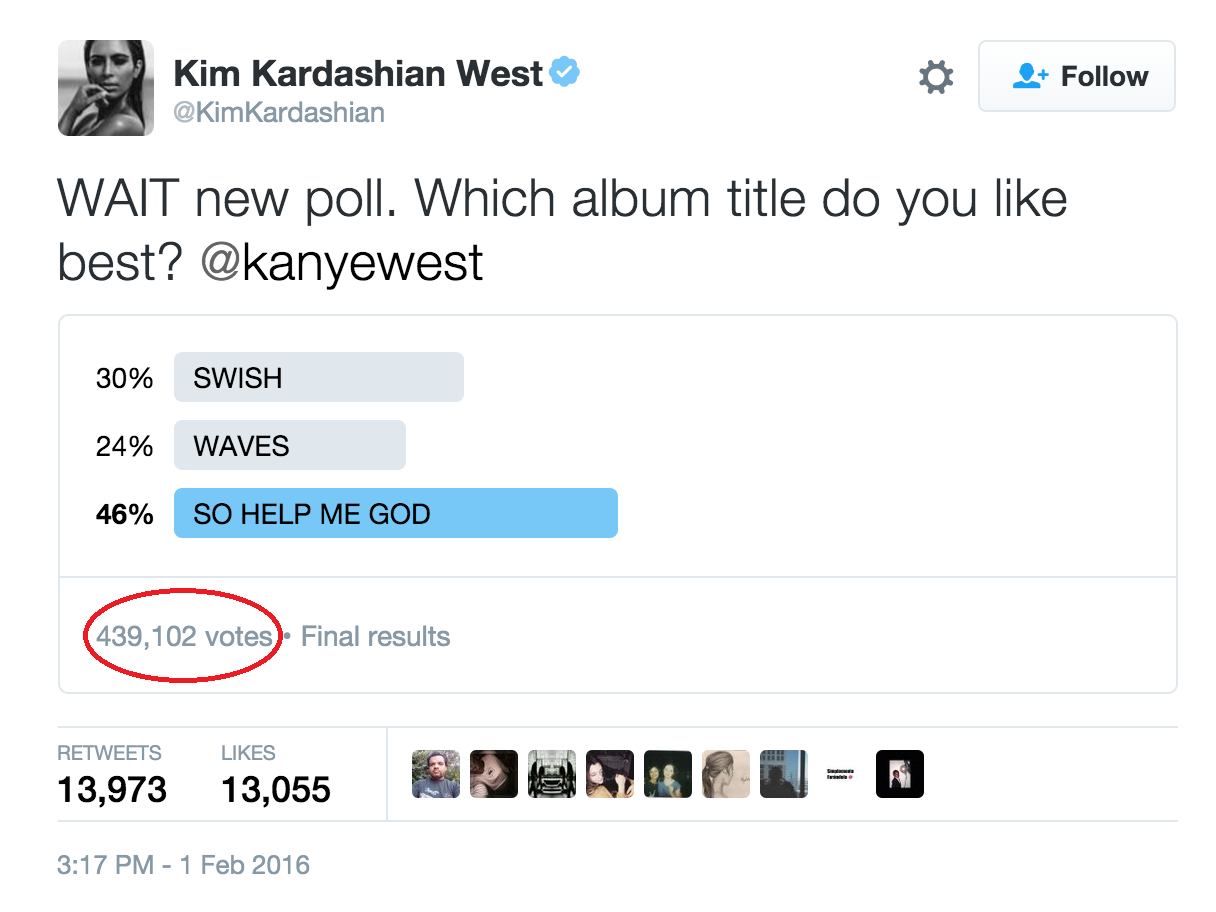
Just look at Kim Kardashian! A simple Twitter poll asking about her husband’s album has attracted huge responds from her followers.
Ensure you designate a primary and secondary social network. There are too many available for you to hit every single one, and you’re better focusing the majority of your attention on your strongest marketplace, as you would with any other business practice.
For us, we really noticed that our readers love Twitter and LinkedIn, but don’t really ‘talk shop’ on Facebook, which is for more social (and increasingly, political) interactions. So those are our primary networks.

What’s even more surprising is that in my recent blog post about 10 Most Powerful Words To Create Catchy Headlines, there are more traffic from LinkedIn compared to Twitter.
We used to see astonishing engagement rates on Google+ and made great strides there over the past few years. Now, however, engagement has started to decline. Have you encountered the same problem? If so, let us know in the comments below.
Too many people spend all their time making plans and not enough time doing them. The idea of this post is to save you time on your planning by letting you know exactly what to do.
Now you have to put this plan into action. Remember, set achievable goals and, provided you have, don’t change course until you’ve achieved them.
What’s more, make sure you only have one goal at a time. Splitting your focus will take far more energy. One thing at once. Do them one at a time.
Track and refine.

Google Analytics is a great tool to keep your eye on engagement rates and keep them going up.
If they dip, it’s time to change – identifying what to change might be trickier, but tracking metrics will provide clues.
Importantly, making active choices about what you’re doing on each element, from the titles to copy to social media posts and more, will allow you to be scientific in optimizing each element. If you sleepwalk through decisions, you won’t remember what you did and won’t be able to identify what effect it had.
There are also tools out there that can help with your social media marketing plan. We’ll update you soon with these, so keep your eyes peeled!
So, here we are. Do you have any questions left unanswered about how to start a social media marketing strategy! If so, ask them in the comments below!
Updated: 2 July 2025

Vivian is an anthropologist lost in the world of digital marketing. She has an interest in learning about the science of marketing and the creativity that businesses use to transform themselves into purple cows.
Struggling with internal linking?
Wish you could...

Automate internal linking

Use optimized anchor text

Fix 18 issues like orphan pages

Get link reporting and analytics
Precise, Simplified, Fast Internal Linking.


Save thousands of dollars (it’s 100x cheaper)

Zero risk of Google penalty (it’s Google-approved)

Boost your rankings (proven by case studies)
Rank High With This Link Strategy
Precise, Simplified, Fast Internal Linking.


Subscribe and receive exclusive insider tips and tricks on SEO.
Delivered to you right from the industry’s best SEO team.
Copyright © 2025 SEOPressor. All Rights Reserved.
Powered by Semantics BigData Analytics (SBDA).
